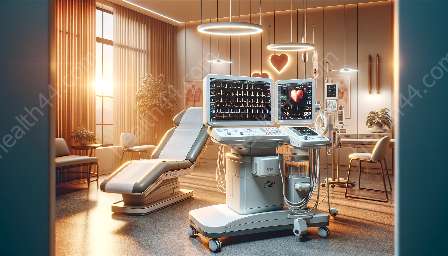Cardiovascular diseases are a leading cause of mortality worldwide, and the timely diagnosis of cardiac arrhythmias is critical for effective treatment and management. Holter monitoring and event recorders play a vital role in the detection and evaluation of such conditions, integrated with ECG/EKG machines and other medical devices & equipment.
Holter Monitoring
Holter monitoring is a continuous method of recording the heart's electrical activity over an extended period, typically 24 to 48 hours, using a portable device known as a holter monitor. The monitor is attached to the patient's chest with electrodes and records the heart's rhythm as the patient goes about their daily activities. This continuous monitoring allows healthcare professionals to identify irregular heartbeats and evaluate the effectiveness of treatment regimens.
Uses and Benefits
The primary uses of holter monitoring include:
- Diagnosing cardiac arrhythmias, such as atrial fibrillation, bradycardia, and tachycardia
- Evaluating the effectiveness of antiarrhythmic medications and other interventions
- Assessing symptoms such as palpitations, dizziness, and syncope to determine their relationship to cardiac rhythm
The benefits of holter monitoring include its non-invasive nature and the ability to capture intermittent arrhythmias that may not be detected during brief ECG recordings. This facilitates accurate diagnosis and personalized treatment plans for patients with cardiac rhythm disorders.
Event Recorders
Event recorders are a type of external cardiac monitor that can be activated by the patient when symptoms occur. Unlike holter monitors, which continually record heart rhythms, event recorders are used for intermittent monitoring over a longer period, often up to 30 days. They are particularly useful for capturing infrequent symptoms and arrhythmias that may not be detected during shorter monitoring periods.
Integration with ECG/EKG Machines
Holter monitors and event recorders are designed to work in conjunction with ECG/EKG machines to provide comprehensive cardiac monitoring. ECG/EKG machines are used to perform diagnostic tests that record the electrical activity of the heart over a short period, typically a few minutes. These machines are fundamental in the initial assessment of cardiac rhythm and serve as the basis for comparison when analyzing the data from holter monitoring and event recorders.
Compatibility with Medical Devices & Equipment
In addition to ECG/EKG machines, holter monitoring and event recorders integrate with various other medical devices and equipment to support the diagnosis and treatment of cardiac conditions. These may include:
- Telemedicine platforms for remote monitoring and consultation
- Electronic health record (EHR) systems for seamless integration of patient data
- Mobile applications for patient engagement and data management
- Cardioverter-defibrillators for the management of life-threatening arrhythmias
- Ambulatory blood pressure monitors for comprehensive cardiovascular assessment
The compatibility of holter monitoring and event recorders with other medical devices and equipment enhances the overall cardiovascular care pathway, enabling healthcare providers to access comprehensive patient information and make informed clinical decisions.


